When we talk about our agricultural and environmental stewardship education programs, we use the term agroecology. It may not be a household word, but we chose it, specifically, for its broad agricultural, ecological and social implications.
Miguel Altieri of UC Berkeley describes agroecology as a “discipline that provides the basic ecological principles for how to study, design, and manage sustainable agroecosystems that are both productive and natural resource conserving, and that are also culturally-sensitive, socially-just and economically viable.” An interdisciplinary idea, agroecology sometimes refers to a science or practice of land management, while at other times indicating more of a social and economic justice movement, with roots in the traditional farming knowledge of indigenous communities. We at Terra Cultura think of it as an ongoing dialogue between traditional farming wisdom, and modern scientific approaches to agriculture.
Agroecology is a field that is constantly evolving as new investigations and innovations emerge. This adaptability is built into its framework. There is no one-size-fits-all agroecological method. Rather, an agroecologist responds to the specific, ever-changing, context of their farming, looking at everything from microscopic soil composition to the greater economic, cultural, and political environment.
How can we regenerate both our fields and or communities in ways that are non-exploitive, conserve resources and nurture the environment?
At Terra Cultura we use agroecology as a lens to view the interactions between humans, animals, plants, and the environment in an agricultural context. We ask, how can we farm abundantly and sustainably while considering the social, economic, cultural, and environmental systems that intersect with agricultural systems? How can we regenerate both our fields and or communities in ways that are non-exploitive, conserve resources, and nurture the environment? Specifically, we farm using regenerative land management techniques, including food forests, no-till farming, and other permaculture methods. These techniques lead to habitat restoration, increased carbon sequestered in the soil, a raised water table, less pollution, and healthier ecosystems for humans, plants, and animals in the region. We work to implement a closed-loop system, nurture the already existing natural systems on the land, and conserve our natural resources instead of bringing in external inputs.
As we continually learn and grow from others, we also seek to share the knowledge we glean. Terra Cultura’s on-site educational farm offers learning opportunities in agroecology, environmental stewardship, and sustainable building techniques to residents of the surrounding area. Through volunteer opportunities, workshops, courses, school field trips, community events, and Community Supported Agriculture (CSA) memberships, local residents will have multiple entry points to learn about agroecology practices and how they are applicable to their lives. We offer educational opportunities to people of all ages and backgrounds, with a special focus on youth in underserved communities. Students in our agroecology programs will also have access to our arts programming, including workshops, collaborative projects, and a wide array of cultural events.
Terra Cultura’s curriculum involves hands-on, outdoor, projects-based learning. We take an integrative approach, emphasizing the interconnectedness of all systems. Our educational curriculum focuses on agroecological principles, such as soil biodiversity, composting, crop diversity and rotation, microclimate utilization, network and cycle management, and closed-loop agriculture.
Industrial Agricultural practices (monocropping, petrochemical fertilizers, pesticides, etc.) and exploitation of natural resources result in climate change, food insecurity, and depletion of biodiversity, topsoil, clean air, and water. Large-scale industrial agriculture has been detrimental to farming communities all over the globe. But through applying a combination of agroecological techniques on its farm, educating the community in making healthy, local and sustainable purchasing decisions, and providing opportunities for the public to interact more directly with the source of its food, Terra Cultura is strengthening its local food system, and furthering a model of resilience for other communities to consider.
The agroecology principles Terra Cultura teaches are not only applicable to land management, but also to a process of empowering adaptive, innovative, involved communities. And it takes a unified community to protect our environment, and to reclaim connections to our land and food systems.
You can read more about Terra Cultura’s approach to agroecology under the “Agriculture and Culture” section here: https://terracultura.org/manifesto


0 Comments
Trackbacks/Pingbacks